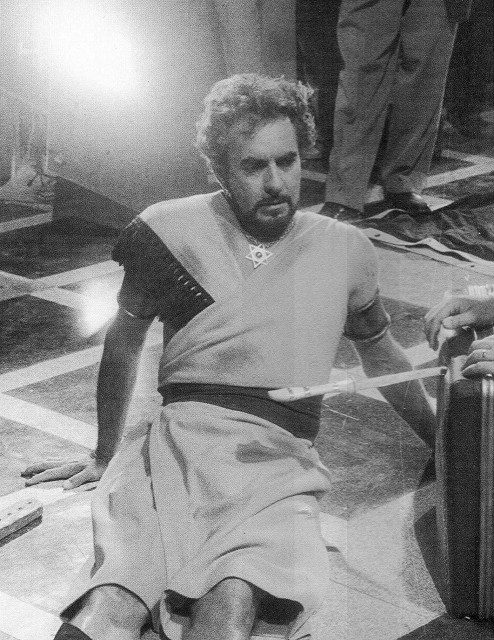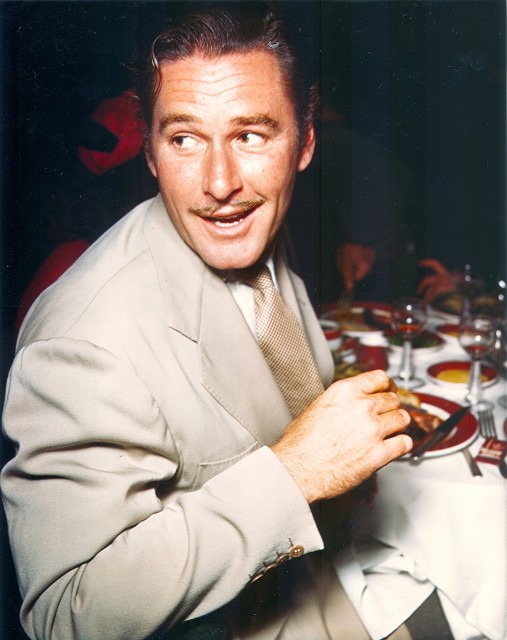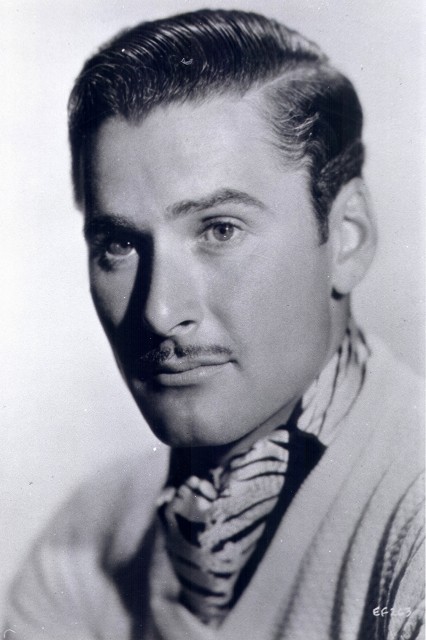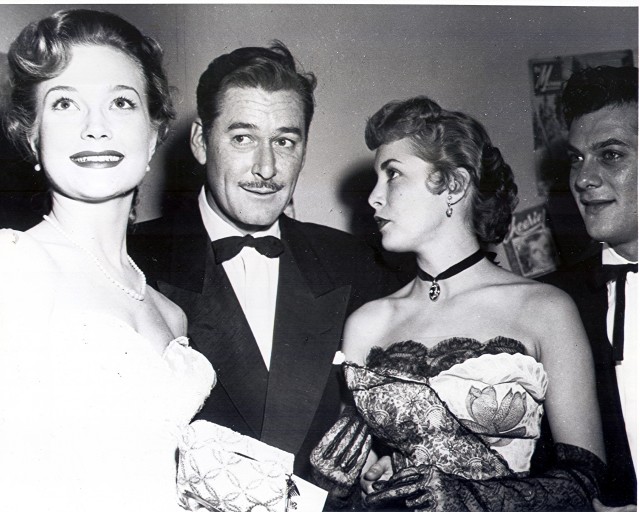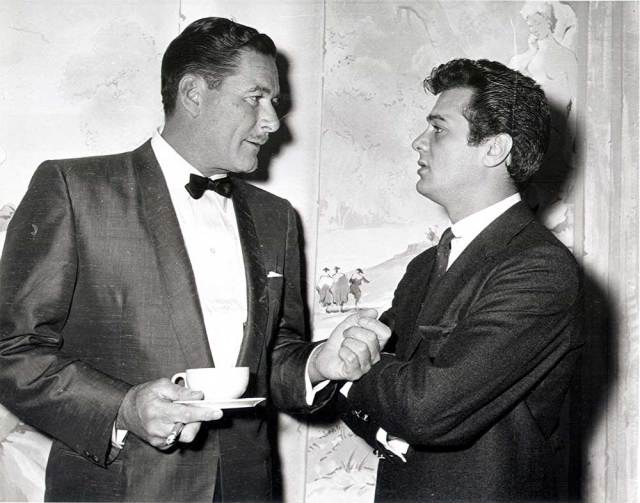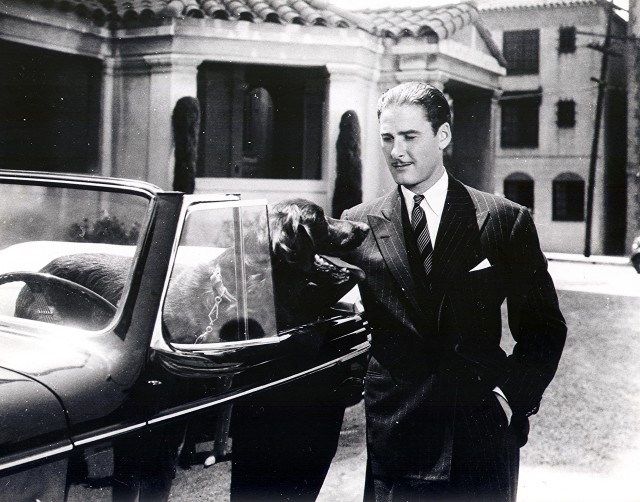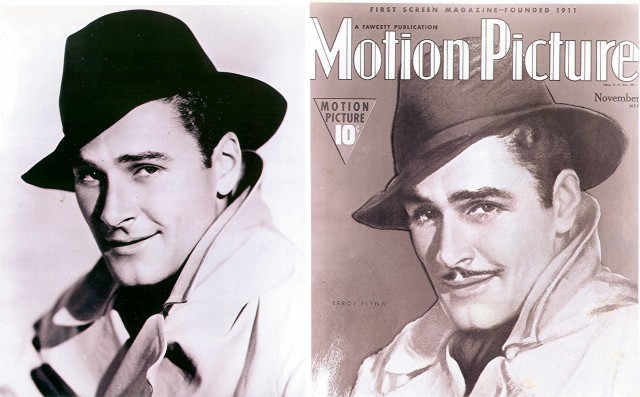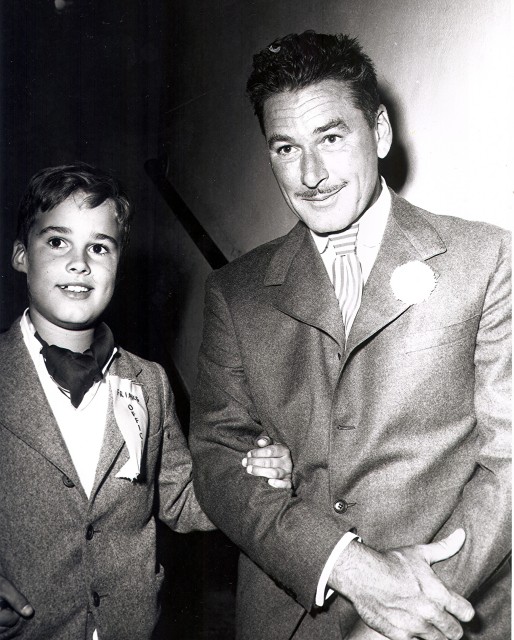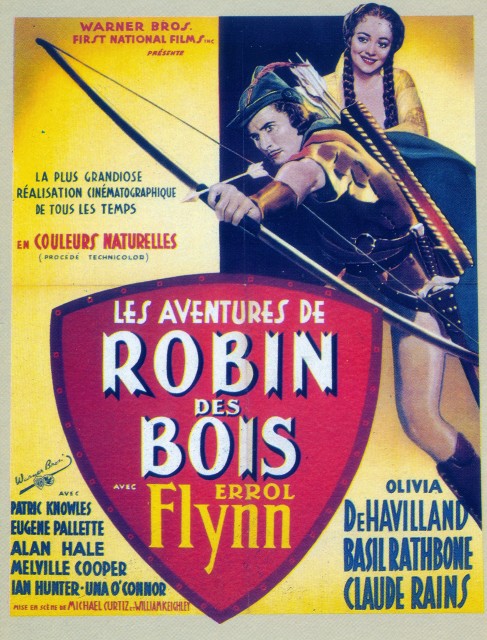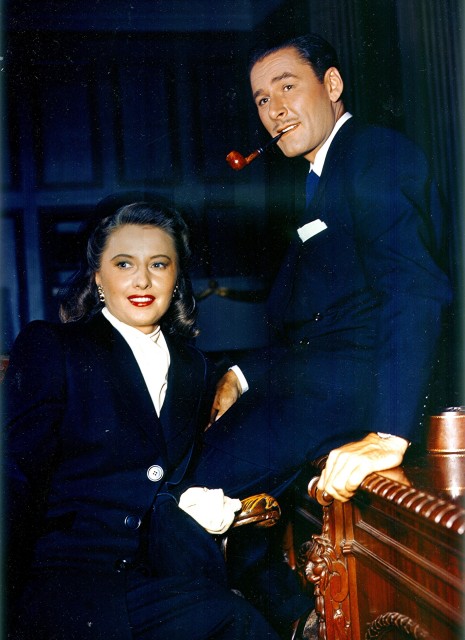This photograph was taken on the set of “Solomon and <?xml:namespace prefix = st1 ns = “urn:schemas-microsoft-com:office:smarttags” />Sheba” on November 15, 1958 in Madrid, Spain. Power had been filming a fight scene with actor George Sanders when he became weak and collapsed. Nobody realized at the time that he was having a massive heart attack. Power retired to his small, Coachman trailer where he took a nap and died in his sleep less than four hours after this photo was taken. It was a tragic end to one of Hollywood’s greatest stars.
<?xml:namespace prefix = o ns = “urn:schemas-microsoft-com:office:office” />
Unfortunately, Tyrone Power shares with Errol Flynn the distinction of having been smeared after his death by unscrupulous biographers. Regarding Power’s alleged homosexuality, I defer to actor Jack Elam who knew Power as well as anyone. When I brought up these allegations in my interview with Elam on June 20, 1998, he became angry and said “Let me tell you something – you tell them they’re full of shit! I mean they’re just full of it! I remember he told Zanuck “Before we finish this picture, put this guy (Elam) under contract.” So I was put under contract at Fox. About three months later he did a picture called “An American Guerilla in the Philippines.” I had a bit part in it, if you remember, nothing important, but I was in the Philippines for a long time on that picture. And I had dinner with Ty many, many nights. And it wasn’t just me. I spent a lot of time with him and talked with him a lot about everything in the world. He loved to converse. He had a very great mind, and he loved to talk. I would have smelled it if there was anything at all. I would have known. There’s no way those people saying that stuff about Ty aren’t full of shit!”
— Shamrock
